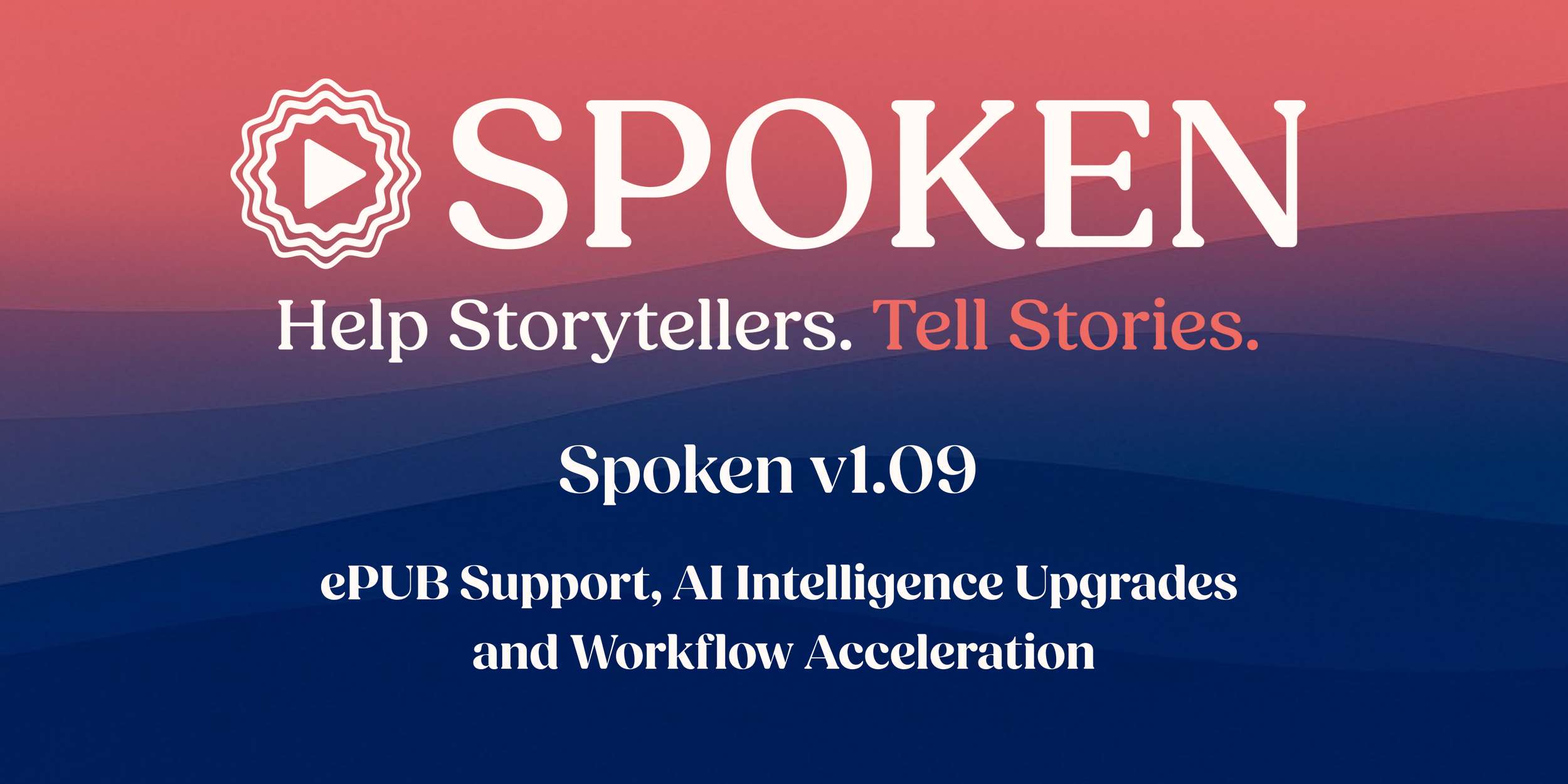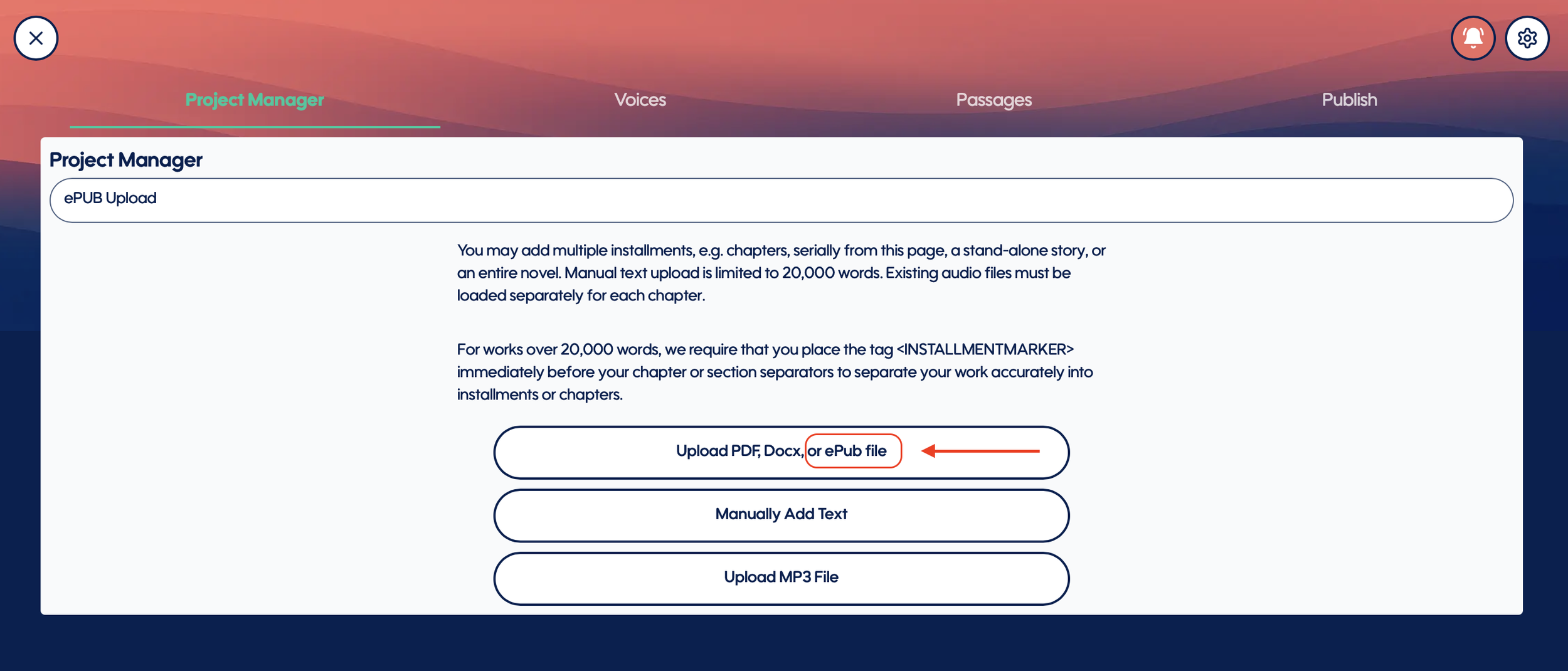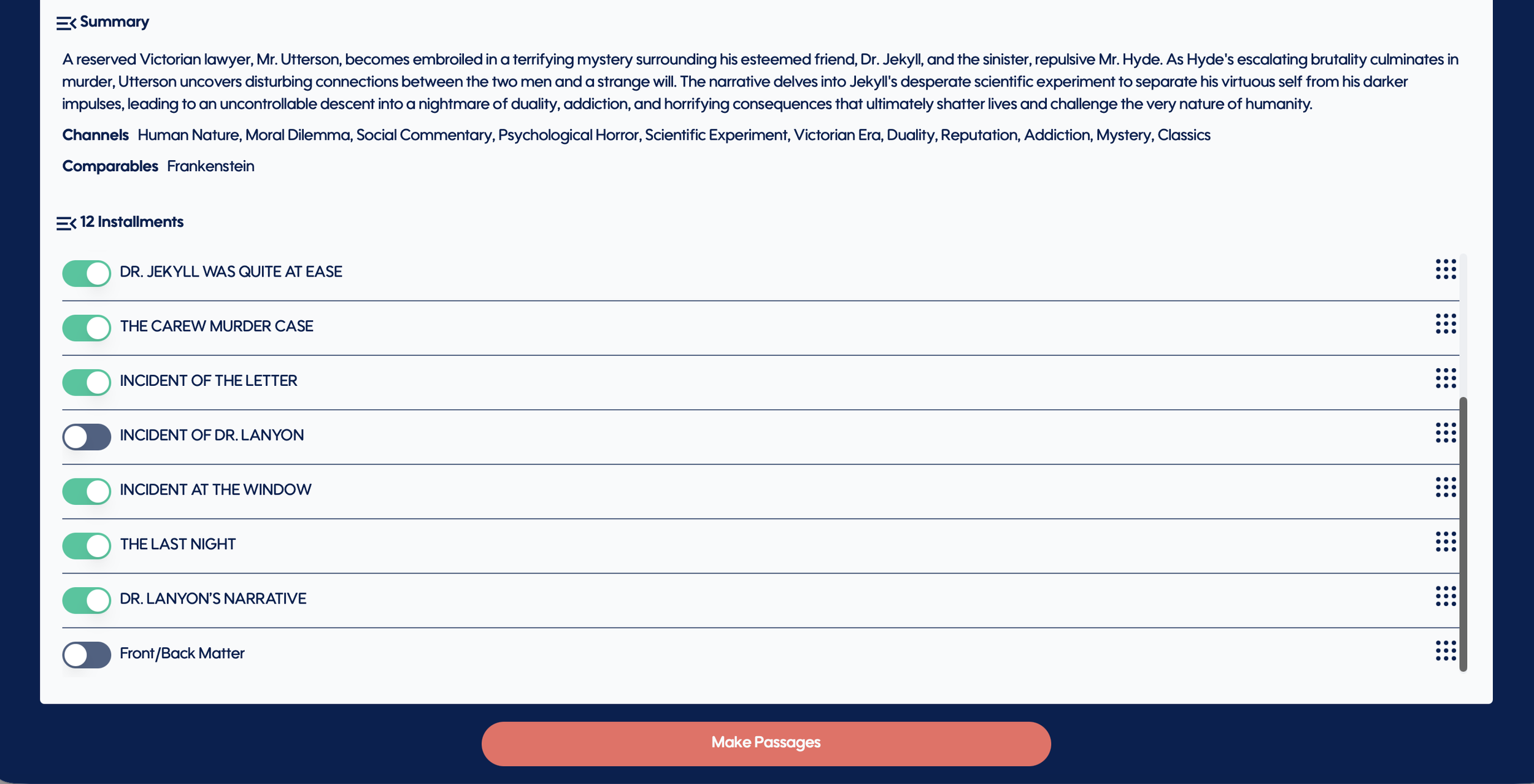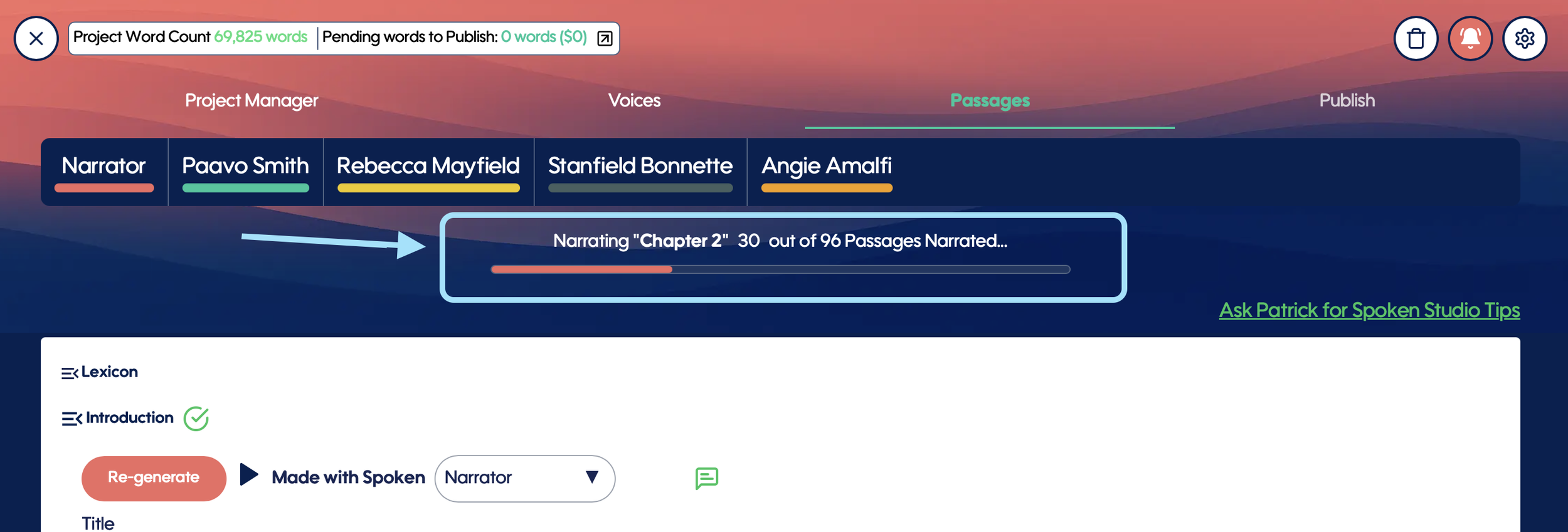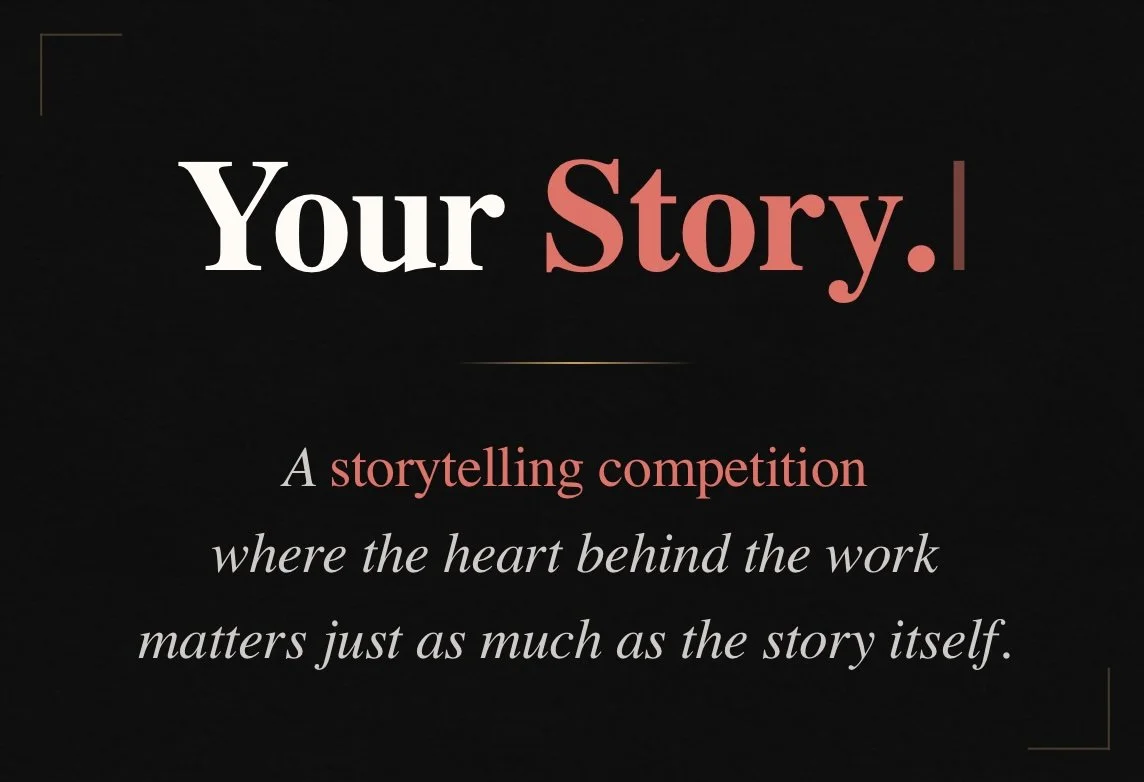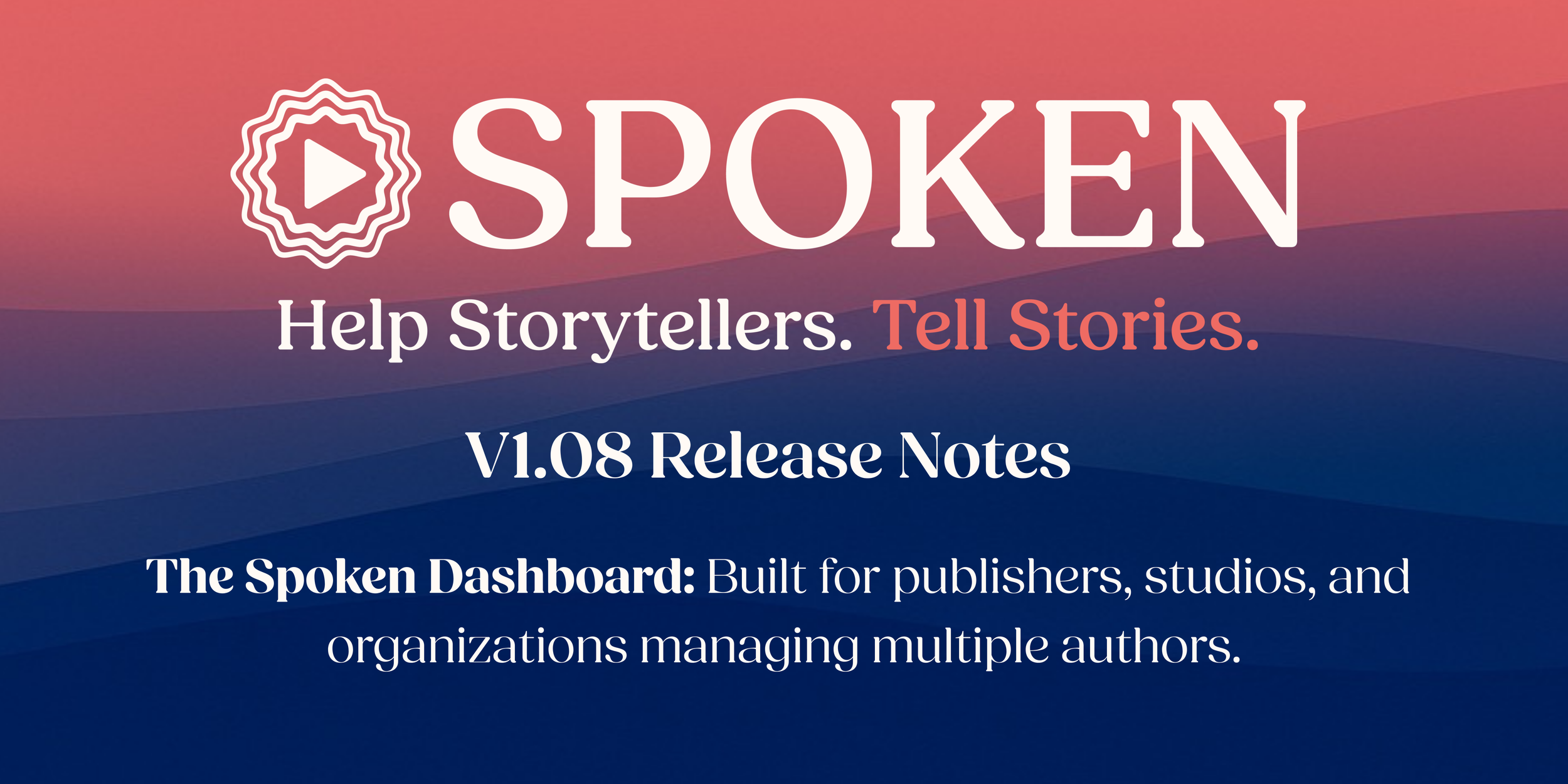Spoken v1.09 Release Notes: ePUB Support, AI Intelligence Upgrades & Workflow Acceleration
Industry-grade inputs. Smarter analysis. Faster paths to narration.
Stepping boldly into 2026, Spoken v1.09 introduces one of our most important upgrades to date: full ePUB support for manuscript uploads, alongside major intelligence and workflow enhancements across Studio.
This release closes the gap between professional publishing prep and audiobook production, giving authors a cleaner, more direct path from finished manuscript to narrated work.
Industry-grade inputs. Smarter analysis. Faster paths to narration.
Stepping boldly into 2026, Spoken v1.09 introduces one of our most important upgrades to date: full ePUB support for manuscript uploads, alongside major intelligence and workflow enhancements across Studio.
This release closes the gap between professional publishing prep and audiobook production, giving authors a cleaner, more direct path from finished manuscript to narrated work.
ePUB Manuscript Support — A Direct Path from Publishing to Narration
Spoken now supports ePUB files for manuscript upload.
This means your industry- and distribution-grade manuscript preparation can flow directly into Spoken — no reformatting, no manual restructuring, no special tags required.
With ePUB uploads:
Chapters are automatically identified and structured
The <INSTALLMENTMARKER> tag is no longer needed
Non-narration elements (images, metadata, formatting artifacts) are intelligently removed
Only the content required for narration moves forward
Your professionally prepared ePUB is now the cleanest, fastest, and most reliable way to bring a book into Spoken for narration.
Smarter Studio — Intelligence at Every Step
Spoken Studio now operates with a significantly more advanced, context-aware intelligence system.
This upgrade enhances how Studio understands your work end to end — from story and character analysis to tone detection, pacing, emotional cue tagging, and even high-level “uber summaries” of your narrative.
These improvements touch nearly every part of the creative workflow.
Selective Confabulation — Build Only What You Need
After uploading your manuscript and completing analysis, you can now select exactly which installments (chapters) you want to confabulate before moving into voice casting and narration.
Confabulate — the stage where Spoken parses your text, identifies characters, and prepares narration structure — is no longer all-or-nothing.
This gives you:
Fine-grained control over how and when parts of your book are prepared
A powerful workflow for serialized releases
An easy way to create first-chapter teasers or samples
Less manual work separating manuscripts upfront
You decide how your project unfolds — chapter by chapter, at your own pace.
Improved Playback — Faster Proofing, Less Interruption
Installment-level playback has been significantly improved.
Previously, if narration was in progress anywhere in your project, playback could be blocked across the board. Now, if narration is happening outside the installment you’re viewing, you can still preview and proof your content freely.
This makes review faster, smoother, and far less disruptive — especially in larger or more complex projects.
Narrate Multiple Chapters at Once
For authors ready to move quickly, Spoken now allows you to initiate narration for multiple installments in parallel.
This means:
Faster overall production
Less waiting between chapters
A smoother path from draft to publish
Perfect for ambitious authors looking to complete and release their work efficiently.
Closing Credits — Distribution-Ready by Default
Every Spoken project now automatically ends with a static Closing Credits installment.
This clearly signals the end of the work and provides a dedicated chapter MP3 required to pass quality control for several digital narration distributors.
Getting your audiobook everywhere it needs to go — cleanly, correctly, and without friction — remains one of Spoken’s highest priorities.
Listen to this example of our new Closing Credits
Looking Ahead
Spoken v1.09 is about meeting you where you are — with smarter systems, more flexible inputs, and fewer blockers along the way.
Spoken in 2026 is faster, more intelligent, and more author-driven than ever before.
And this is just the beginning.
We’re kicking off the new year in a BIG way with “YOUR STORY”
You're invited to kick off 2026 with a unique opportunity to bring your story, and your voice(s), to life through "Your Story," a first-of-its-kind audiobook storytelling competition that celebrates not only great writing and audio, but the heart, purpose, and personal journey behind it.
We’ve teamed up with Author Nation and Reader Nation to give indie authors a platform to reach new audiences and be celebrated not only for their craft, but for the personal “why” behind each story.
The top 10 contest entries will be streamed on our YouTube channel where Reader Nation readers will vote for the grand prize winner!
And our friends at Author Nation and Reader Nation are helping us!
You're invited to kick off 2026 with a unique opportunity to bring your story, and your voice(s), to life through "Your Story," a first-of-its-kind audiobook storytelling competition that celebrates not only great writing and audio, but the heart, purpose, and personal journey behind it.
We’ve teamed up with Author Nation and Reader Nation to give indie authors a platform to reach new audiences and be celebrated not only for their craft, but for the personal “why” behind each story.
The top 10 contest entries will be streamed on our YouTube channel where Reader Nation readers will vote for the grand prize winner!
Why are we doing this?
Our collaboration with Author Nation is a response to industry trends and anticipated audiobook market explosion in 2026.
WE’RE NOT JUST LOOKING FOR GREAT STORIES
(+ GREAT DIGITAL NARRATION)
We’re looking for the story behind the story and why it mattered enough for you to make it -- and we've got some BIG PRIZES to celebrate that!
Using Spoken Studio, narrate and submit a short audio work (under 10,000 words) using single, multi-voice or duet digital narration, along with a brief author commentary that explains the spark and the personal truth behind it.
”Audio is the fastest-growing segment of the publishing industry. So when the Spoken team came to us with this idea, we thought it was a great way to usher in the new year.”
– Joe Solari, co-producer of Author Nation and Reader Nation
“This is a perfect time for authors to build creative momentum, and the contest helps expand visibility. And with our invitation to Reader Nation participants to vote, this is another way to reach a captive audience of readers.”
– Suze Solari, co-producer of Author Nation and Reader Nation
A growing number of indie authors are narrating full-length audiobooks, as well as shorter works, including teasers. Some stick with single narration, while others are casting voices for every character and exploring duet narration, as well as cloning their personal voice. "Your Story" celebrates the writers who are embracing storytelling in new and exciting ways through Spoken.
“This isn’t just about a great story. It’s about why you are the only person who could have brought it to life,”
– Spoken CEO and sci-fi author Phil Marshall
“Your Story” puts voice, connection, and authenticity at the center of the audiobook experience. Projects will be evaluated on the story itself, the performance, and the personal story behind it. Authors are invited to submit a short work (less than 10,000 words, such as a short story or the beginning of a novel) narrated on Spoken, along with a personal commentary that gives readers a deeper understanding of the story behind the story, and the person writing it.
Submissions are open January 12 - February 20, 2026
Entries will be reviewed by a panel of distinguished indie author judges and narrowed down to 10 finalists. The finalists will be featured on a dedicated YouTube playlist hosted by Spoken, with the readers of Reader Nation invited to vote for their favorite story in March.
The Grand Prize winner will receive:
• Fully-produced YouTube audiobook
• Cinematic book trailer
• Post-contest interview
• Free promotion of their story on YouTube
• Ticket to Author Nation 2026
• VIP ticket to Reader Nation 2026
• One year of a Spoken subscription
All finalists will receive free Spoken publishing credits (100,000 words), featured placement in Author/Reader Nation and Spoken newsletters, and an invitation as a panelist on an exclusive Winner Webinar hosted by Spoken and Author/Reader Nation on March 25.
More details can be found at www.spoken.press/yourstory.
As always, thanks for being part of our story. And thanks for inviting us to bring yours to life.
The Spoken Team
Spoken V1.08 Release Notes: The Spoken Dashboard
A new era of visibility, control, and collaboration.
Spoken v1.08 introduces the Dashboard — a powerful new system built for publishers, studios, and organizations managing multiple authors or titles. This update transforms Spoken into a scalable, centralized platform for overseeing the narration of projects across an entire author network.
Whether you're guiding a handful of creators or running a full editorial team, the Spoken Dashboard brings everything together in one place, simplifying how you track progress, manage projects, and collaborate with your authors.
A new era of visibility, control, and collaboration.
Spoken v1.08 introduces the Dashboard — a powerful new system built for publishers, studios, and organizations managing multiple authors or titles. This update transforms Spoken into a scalable, centralized platform for overseeing the narration of projects across an entire author network.
Whether you're guiding a handful of creators or running a full editorial team, the Spoken Dashboard brings everything together in one place, simplifying how you track progress, manage projects, and collaborate with your authors.
A Command Center for Your Authors
With the new Dashboard, clients gain a bird’s-eye view of all their authors and projects. From one central interface, you can:
Monitor progress across works-in-development
Review narration activity and project statuses
Navigate directly to any project for edits, publishing, or downloads
This update is designed to scale, whether you're overseeing 3 projects or 300.
Elevated Access, Streamlined Control
As a Dashboard user, you have enhanced access and visibility across your team’s content.
With this elevated access, Dashboard Users can:
Switch between authors and projects effortlessly
Guide production from manuscript upload to final export
Stay in sync with every creator’s progress without jumping through accounts or chasing updates
Dashboard Users retain full access to their own author tools as well, enabling dual roles when needed.
Author Collaboration, Simplified
Bringing an author into your dashboard is seamless and flexible. After an email handshake between accounts, you’re off to the races.
Authors can remain in control of their own profiles and can join or leave dashboards with just a click, preserving trust and transparency in the process.
Safety Ratings — Smarter, Quieter, Still There
Safety Ratings have been moved into the background of the analysis experience. These ratings — such as for violence or foul language — are still being generated, but they’ll no longer appear on your project page, nor in any metadata that is public-facing.
They remain fully active behind the scenes, and will only surface when a project is flagged for Dangerous Content. Otherwise, they stay invisible, reducing distraction while keeping the system safe and accurate.
Built for Teams, Ready for Growth
This release lays the foundation for Spoken’s evolution as a platform for creative teams and publishing operations.
Whether you're a studio looking to manage narration across multiple titles, or a publishing partner supporting a growing catalog, the Dashboard offers the tools to:
Scale your audiobook output
Maintain quality and consistency
Keep your team aligned at every stage of production
Spoken v1.08 is the quintessential tool for creative teams to build, manage, and publish AI audiobooks together.
Your authors.
Your projects.
All in one place.
This is Spoken at scale.
By Storytellers. For Storytellers.
We believe that giving voice to writing isn’t just for those with resources to create elaborate productions or patience to navigate complex publishing hoops. Spoken was created by a small team of storytellers based in Portland, Oregon who believe in empowering self-publishers.

